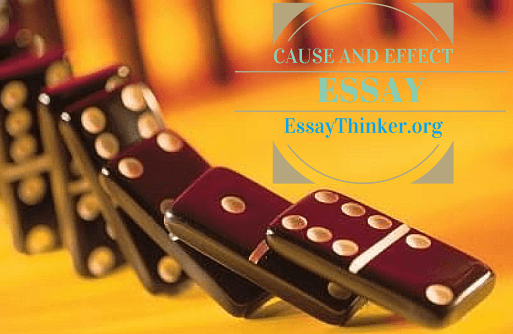Cause and Effect Essay

- Date: 19 February, 2018
- Category: Assignment Writing Tips
Cause and Effect Essay Writing – Some Basic Guidelines
What is a cause and effect essay, and why would somebody write one? The most common answer any student will give is because his/her instructor or professor has assigned one! To write a good one, and thus get a decent grade, understanding the purpose and guidelines for putting one together is pretty important.
The purpose of writing a cause and effect essay, is to explore how and why events occur, and the relationships between those events. Cause and effect essays, then, can be written on a variety of topics and for a wide variety of courses. It is no longer just your English teacher that assigns these little beauties. So, be prepared for such assignments in history, sociology, biology, chemistry, physics, literature, and fine arts – yes, all of them! Whatever the topic, there are a guidelines to follow when composing a cause effect essay and understanding them means the task is easier on you and means your instructor might be impressed.
Make Sure You Understand the Difference Between Cause and Effect
This can be tougher that it appears. As you narrow down your list of topics, you will find that one event may have been caused by another, thereby making it an effect. On the other hand, that same event triggers other events, also making it a cause. Are you confused yet? One rule to remember is that a cause answers why and an effect answers what? In order to keep the scope of your essay from becoming too unmanageable, you may need to write a cause and effect essay outline. In this outline, you can set limits on which causes and effects you intend to cover. Sometimes this is best accomplished by limiting the essay to one cause and its immediate effects. Other times, it is best to limit the scope to a specific period of time. The latter is often appropriate for essays written about historical events. Failure to manage essay scope will result in an essay that goes on and on without leading to any type of satisfying conclusion.
Selecting, Cause, Effect, or Both
As you learn how to write cause and effect essay, you should be aware that there are actually three different types of essays in this category. There is the cause essay, in which you will examine only the causes of an event. Then, there is the effects essay, in which you will examine only the effects of an event. Finally, there is the cause and effect essay, in which you will examine both the causes and effects of an event. When you receive an assignment to write something in the cause and effect essay format, pay close attention to the directives you are given. You don't want to write about both cause and effect when you should only explore one or the other.
Of course, if you are given a choice, it is often quickest to go with writing a cause and effect essay. This is because you will often find that you have more options as you write, and, in most cases, you will be able to write quickly and more efficiently.
Cause and Effect Topic Selection
If you have been given the task of choosing your own essay topic, you are very lucky. The possibilities are nearly limitless when it comes to subjects that can be explored via a cause and effect essay. For example, current events are an amazing repository for essay ideas. A simple exploration of recent news headlines brings up several possibilities. Here are just a few:
- Explore the effects of GMO on the sales of organically grown produce.
- What are the causes and effects of reduced school funding?
- What are the causes and effects of rising sea levels across the globe?
- What are the causes of young men from the western world becoming radicalized?
- What are the causes and effects of unrest along the Gaza strip?
Cause and Effect Conclusions
As with any essay, it is important to finish with a strong conclusion. Summarize what the cause was, and what the effects are in a few sentences. If you have hypothesized that any actions could have made a difference, restate that too, and then refer back to evidence supporting that thesis.